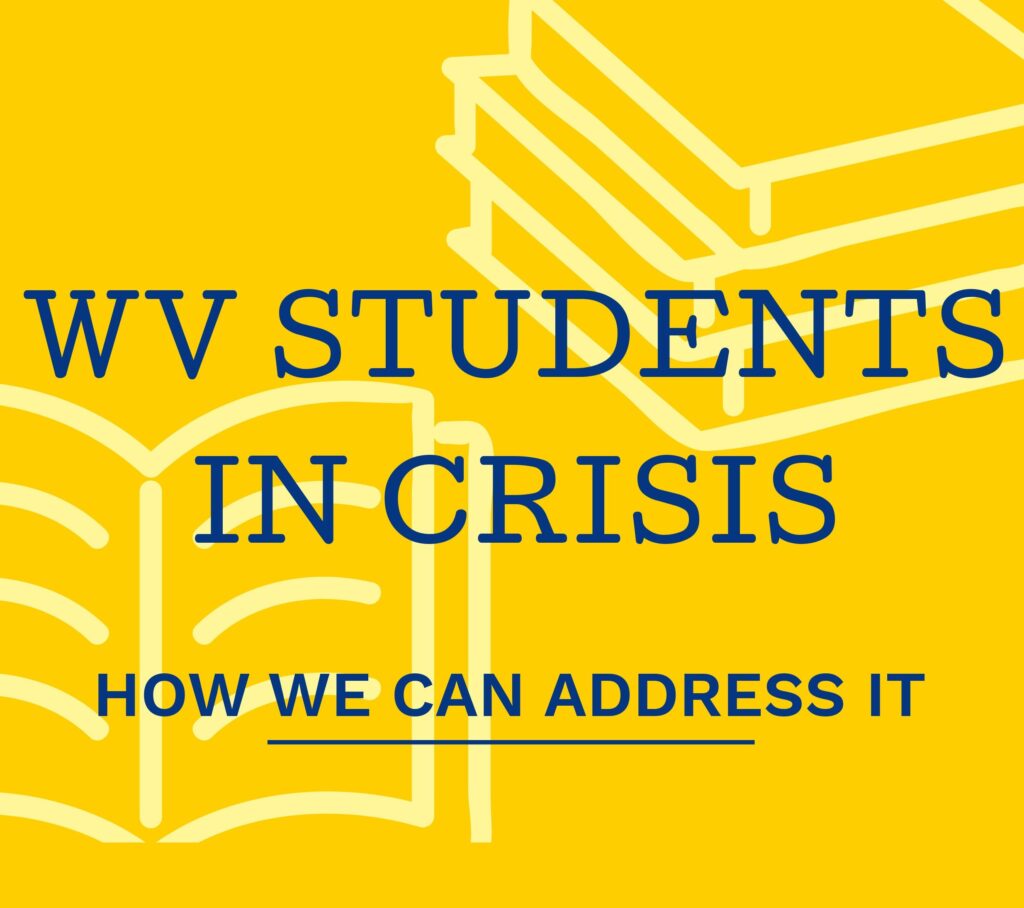In December, WV CAG joined with community partners and allies to host the first in a series of webinars on school suspension disparities and how to address the problem. As Rev. Matthew Watts, Pastor at Grace Bible Church in Charleston and a convener of the Tuesday Morning Group told Black By God and Mountain State Spotlight, the impact of school discipline “falls heavily on the most marginalized, and the poorest people. And the cycle will be perpetuated until we come together and figure out how to address it today.” While Black children make up less than 5% of the total student population in West Virginia public schools, they are suspended from school at twice the rate of their white classmates.
At the December forum, Rev. Watts provided historical context dating back to the 1970s documenting the disproportionate suspension of African American children, and discussed the short and long term consequences of school suspensions and expulsions. In the short term, school suspensions and expulsion contribute to poor academic achievement. Longer term, this trend of low academic achievement feeds the “school-to-prison pipeline” leading to higher rates of incarceration for Black students.
Watts called on education advocacy partners to take action at both the state and local level. As a next step at the local level, he recommended holding meetings to educate community members about the impact of school discipline and encourage them to engage with their Local School Improvement Councils to develop policies and plans to reduce school suspensions. At the state level, he requested that letters of support be sent to the WV State School Board, the WV Department of Education, and legislative leaders urging them to enact the School Suspension Plan developed by the Tuesday Morning Group.
At a follow up webinar last week, Rev. Watts reiterated his previous calls to action and outlined how targeted allocations of American Rescue Plan Act (ARPA) dollars could be used to fund community support services, and the need to engage with legislative leaders to urge them to provide the necessary funding. In summary: Educate (yourself and others), Advocate (for the children), and Agitate (the education and systems).
Rev. Watts concluded his presentation by encouraging webinar participants to observe Martin Luther King, Jr. Day by WV attending the NAACP Day at the Legislature, and lifting our collective voices to call on lawmakers to address inequities in school discipline, and to advocate for just, fair and equitable allocation of ARPA funds to help our most vulnerable.
WV Students in Crisis: A Virtual Forum on School Suspension Disparities (Part 1 – 12/13/22)
WV Students in Crisis: the Silent Underlying Condition & Call to Action (Part 2 – 1/11/23)
Additional Resources & Background Articles:
- School suspensions can lead to poor academic performance, studies say
- Inside West Virginia Politics – suspension in schools segment begins at the 16:20 mark
- West Virginia education officials working on racial disparity issues
- Disciplinary Disparities Focus Of Public Comment At Board Of Education Meeting
- Black students in WV are suspended twice as often as their white peers
- West Virginia Education Officials fail to address unfair Black suspension rate, “school to prison” pipeline continues unabated
- WV students who are poor, Black or in other categories continue to be suspended at higher rates

